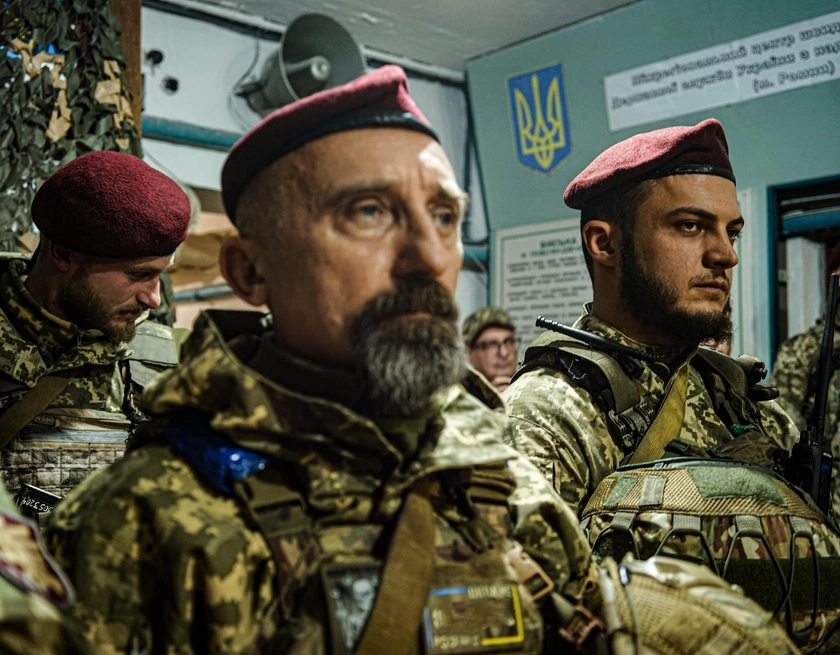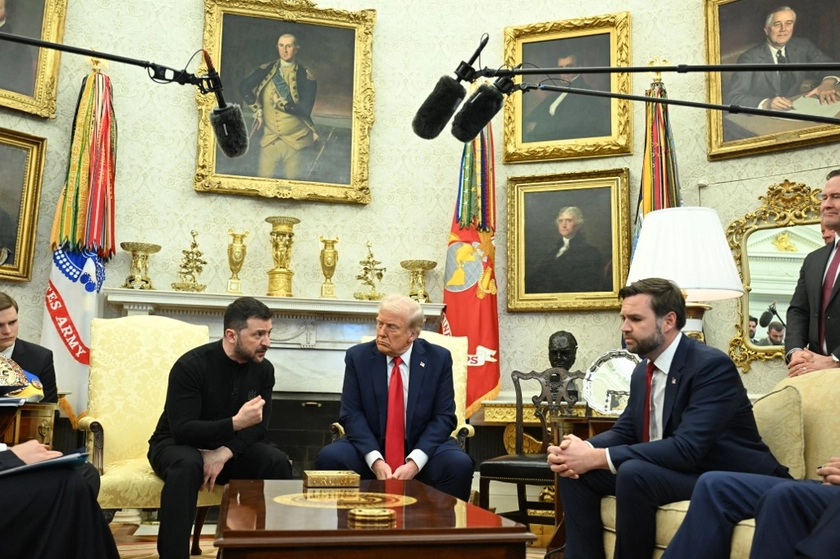African leaders will arrive in Ukraine on Friday in a self-professed bid to broker peace between Kyiv and Moscow, a grand ambition already beset by problems and that looks set to fail.
What’s the plan?
Four presidents and three representatives are due to hold talks with President Zelensky in Kyiv before heading to Saint Petersburg on Saturday to meet his Russian counterpart, Vladimir Putin.
JOIN US ON TELEGRAM
Follow our coverage of the war on the @Kyivpost_official.
“It is at times of escalated conflict that a search for peace must be equally accelerated,” South Africa’s Cyril Ramaphosa said in a statement.
The leaders have, according to official South African statements, “agreed that they would engage with both President Putin and President Zelensky on the elements for a ceasefire and a lasting peace in the region.”
The high-profile diplomatic team hopes to bring to the table the voice of a continent that has been badly hit by rising grain prices and the wider impact on global trade since Russia invaded Ukraine last year.
That sounds reasonable – what’s the issue?
The African plan centers on a ceasefire and there is absolutely nothing to indicate that this is anywhere near achievable right now.
Moscow has intensified its nightly attacks on major Ukrainian cities in recent weeks, while Kyiv has launched a major summer offensive to reclaim Russian-occupied territory.
Getting both sides to agree to a ceasefire at what looks like a pivotal stage of the war seems fanciful and even sources among the African delegation acknowledge this.

Lessons From the World’s First Full-Scale Cyberwar
“The conditions for peaceful and constructive discussions are no longer there,” a Congolese diplomatic source told AFP on Wednesday.
Then there’s the fact that African countries have been divided over their response to the war, with some siding with Ukraine, while others have remained neutral or gravitated towards Moscow.
Why are they still coming to Kyiv then?
Some of them aren’t. Three leaders – Uganda’s President Yoweri Museveni, Egypt’s Abdel Fattah al-Sisi and Congo-Brazzaville’s President Denis Sassou Nguesso – have pulled out of the trip.
They will be sending an ex-premier, the current prime minister and the head of their office respectively in their stead.
Museveni said he could not attend after contracting Covid-19.
The diplomatic source lamented that the absence of al-Sisi, “a heavyweight on the African scene,” was “likely to weaken the scope” of the initiative.
Only three of the original mission members – Ramaphosa, Senegal’s Macky Sall and Zambia’s Hakainde Hichilema, plus Comoros President Azali Assoumani, who currently heads the African Union – will be heading to Kyiv by train from Poland on Friday.
What has Ukraine said about the delegation?
Ukraine has been skeptical but has left the door open to at least give it a chance.
“We are keen to engage with them... to see whether there is a space to come up with joint efforts that would bring peace in Ukraine closer,” Ukraine’s foreign ministry spokesperson Oleg Nikolenko said in a statement.
But he added that territorial concessions by Ukraine were not on the table.
Others in the Ukrainian government have been far less charitable in their assessment.
In an article for Kyiv Post, Ukrainian MP and Chair of the Foreign Relations Committee, Oleksandr Merezhko, said there are “serious questions around credibility where the so-called ‘neutrality’ of member nations is concerned.”
He added: “Moreover, it is very difficult for Ukrainians to accept the neutral character of some members of the African delegation, including South Africa and Uganda, the latter whose president Yoweri Museveni has said that he saw no reason to criticize Russia after the invasion in extolling its virtues, and whose son, the army commander, welcomed the Russian invasion.
"General Muhoozi Kainerugaba has said since that he would send Ugandan troops to defend Moscow in case of an 'imperialist' threat. 'Call me Putinist if you want, we Uganda should send soldiers to defend Moscow if ever it was threatened by imperialists,' he has written."
Can anything positive come from the visit?
The African mission’s chances to secure a proper peace look incredibly thin, with both Kyiv and Moscow convinced they can win on the battlefield, analysts say.
“They will not be able to offer us anything in terms of conflict resolution,” Ukrainian political analyst Anatoliy Oktysiuk said of the African leaders.
“They cannot play the role of mediators. They have little political weight; they do not influence anything.”
Still, analysts said the mediating effort could hope to win some concessions from the Kremlin ahead of a Russia-Africa summit next month.
Securing the future viability of a deal allowing grain from Ukraine to reach the global market – an agreement Moscow has threatened to quit – would be one goal.
Prisoner swaps and fertilizer exports will also likely be on the agenda in Moscow, other analysts have suggested.
“This is theater,” Jeremy Seekings, professor at the University of Cape Town, said of the peace effort. Ramaphosa “really needs something to restore his credibility. And he's clutching at straws, because this is a very long shot.”
You can also highlight the text and press Ctrl + Enter











